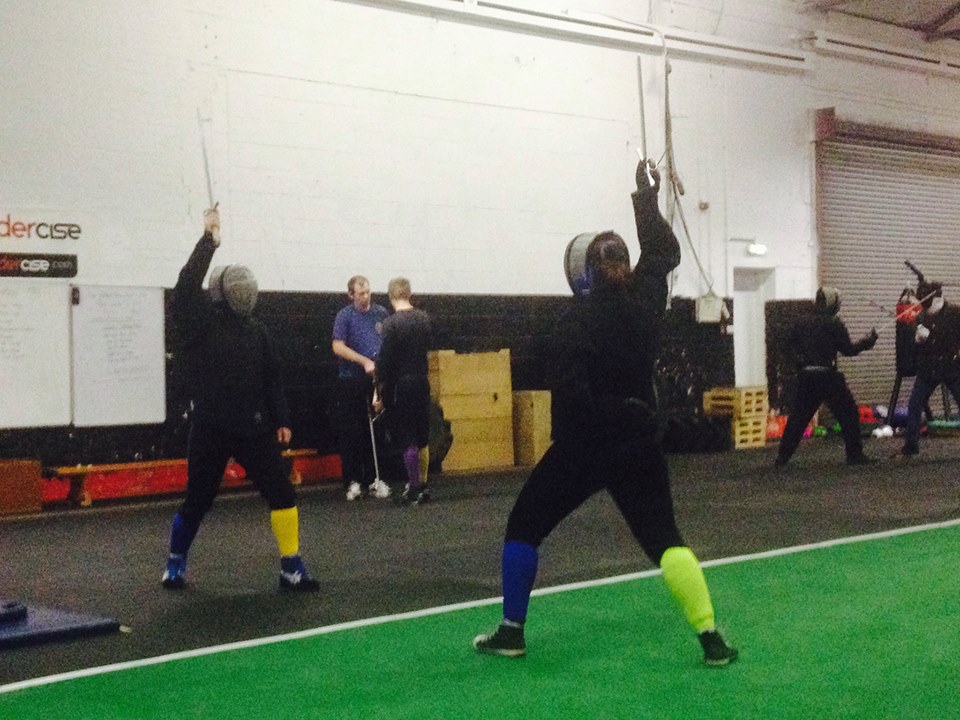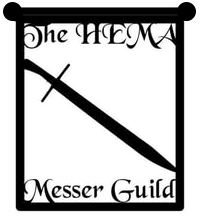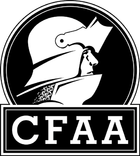I fight like a girl? Tell that to my sword...
Apr 7, 2016
It’s late on a Wednesday night, and I’ve just finished training. I’m changing my shoes, putting my equipment back in my bag, winding down from an intense session, engaging in small talk. Around me, people chatter excitedly. About their new weapons, about historical manuscripts, or the new Star Wars film–no topic is really off limits. It’s a good atmosphere, a healthy one, a happy one.

Historical European Martial Arts, or HEMA, is, by far, the most physically challenging thing I have ever (wilfully) done. It’s quite a big step to attend an one-hour free workshop with your best friend and then, a week later, know you’ll have a 43-inch sword coming at your face on a weekly basis. Fortunately, when I started off, I was in good hands. My club has an immaculate safety record and the instructor has been involved with HEMA since 1994 – so basically my entire lifetime. Weekly 90-minute sessions under his masterful guidance were all it took to nurture confidence, love of my own body, and awareness of my own strength.
A disclaimer, of sorts. I don’t claim to be anything even remotely resembling an expert in HEMA. I’m still very much in the beginning of my learning and I apologise to any and all avid fencers, who cringe at any and all inaccuracies in the following. This is all about my personal experiences, in the very particular context of my own physical and mental health, so those experiences would not necessarily be the same as anyone else’s in the HEMA community.
After training I often come home, bruised, battered, and oddly euphoric, and all I can do is drink some water and collapse into bed. So when I tell stories of how someone wrestled me to the ground the other night, people often ask me why I do it. The next time around, I always move a little bit faster, the sword’s not as heavy in my hand, my grip is tighter, my foot moves to the right place and I feel balanced, whole, delighted with what I’ve achieved and what I’ll continue achieving. This is why I do it. Even for my measly six months in the HEMA world–which, really, is only baby steps into a universe of expertise that exists out there, I can feel the very ostensible effect it’s had on my perceptions of my own body and my own physical condition. I’ve started cherishing the bruises because it only takes a look at them to remember how happy, satisfied, and content I am with myself when I’m training.

Sometimes it is emotionally challenging, too. I wonder if I’ll ever be good enough to face up to fencers with different fighting styles, even perhaps take part in competitions. I wonder if I’ll ever be able to afford all the kit I will need. I wonder even if, with how unpredictable and changeable my life is at the moment, I will be able to keep it up in the first place. At times, ever less often, I fear whether I’m actually any good at all.
I remember reading somewhere that we, as women, are always in fierce battle with the lies we tell ourselves. We have weak muscles, weak ankles and wrists, fragile bones, we’re not quick enough, we’re not thin enough. We’re not good enough. It’s lies I’ve told myself quite often and, even now, I might sometimes still believe them. At the end of the day though, I go to training and any memory of those lies disappears. When you get into that headspace of holy-shit-there’s-a-sword-coming-at-my-head-what-do-I-do, unsurprisingly, you can’t think of much else.
So that fear is immensely overpowering at times. But then, every Wednesday, with my bag of kit over my shoulder, I go to training and I fight my fear. I learn how to face it and I learn that my body and my passion are good enough and it is the best lesson you can get again and again and again, until it no longer needs to be taught.
The supportive atmosphere helps. When you put your fencing mask on, you become anonymous. The outside world disappears. It doesn’t matter who you are, as long as you’re doing what you should, staying safe, and enjoying yourself. But then the mask comes off and you’re a community, you go to the pub and joke about how your little martial arts gang might just have the upper hand if a pub brawl starts. Trust me, swinging a sword at someone is truly a great way to make friends.
Question still remains though: am I still afraid, after all this? Yes, part of me is. To quote one of the great German fencing masters, Erschrickstu gern/kain vechten nÿmmer gelerñ. If you’re easily frightened, no fencing shall you ever learn. So I’m not letting my fear stop me from doing something I love deeply and something that helps me train not just my muscles but also loving my body, my mind, and my soul.
This article first appeared in Verbal Remedy and is reproduced here with permission.
http://www.verbalremedy.co.uk/i-fight-like-a-girl-tell-that-to-my-sword/
POSTSCRIPT by Robert Brooks, Marshal of the Hotspur School of Defence
The great English gentleman, fencer and author, George Silver, wrote in his 1599 treatise Paradoxes of Defence :
“It is noble, and in my opinion to be preferred next to divinity, for as divinity preserves the soul from hell and the devil, so does this noble science defend the body from wounds & slaughter. And moreover, the exercising of weapons puts away aches, griefs, and diseases, it increases strength, and sharpens the wits. It gives a perfect judgement, it expels melancholy, choleric and evil conceits, it keeps a man in breath, perfect health, and long life. It is unto him that has the perfection thereof, a most friendly and comfortable companion when he is alone, having but only his weapon about him. It puts him out of fear, & in the wars and places of most danger, it makes him bold, hardy and valiant.”
This is perhaps one of the best advertisements for the benefits of fencing in keeping a healthy mind, body and spirit.
Here at the Hotspur School, we’re fortunate to have a notably diverse group of students, particularly in the proportion of female fencers taking our classes. At last count, one third of our current membership is made up by women.
We have one simple mission at heart - that every student at the School enjoys the experience of learning Historical Fencing to the fullness of their ability. And at it’s core, the pursuit of arms is not just concerned with the learning of different weapons. It’s about self-discipline, self-belief and self-mastery.
That’s something we can all aspire to and benefit from, whoever we happen to be.




